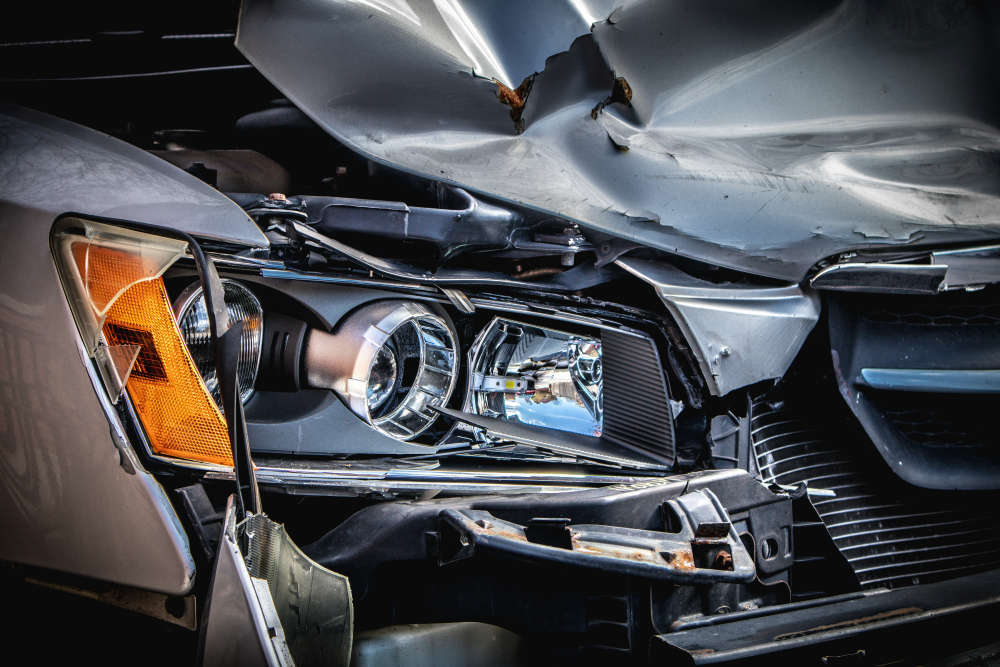
Jersey has a higher proportion of people hurt on the roads compared to anywhere in the British Isles and many European countries.
There were 214 casualties on the island's roads last year, according to a new government-commissioned report .
Three people died and 188 were injured in crashes, 47 of them seriously.
Pedestrians, cyclists and motorcyclists - who are categorised as 'vulnerable road users' - are involved in most accidents (67%).
The report - compiled using data from States of Jersey Police to give a picture of road safety in the island - suggests 'vulnerable road users' are at a 28.9% risk of being killed and seriously injured on Jersey's roads.
That is compared to a 15.7% risk for car and van drivers.

The stats show Jersey Police responded to 932 RTCs in 2023. That is an average of 18 every week.
It cost the force £1.7 million in resources.
However, the total cost of the 188 injuries suffered on the roads runs to an estimated £28.6 million. That includes medical expenses, repairing damage and legal and insurance costs.
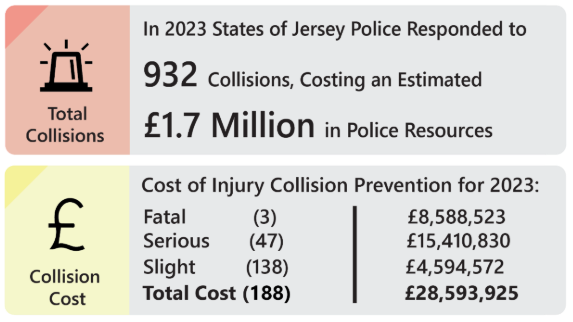
Infrastructure Minister Andy Jehan says behind the data is a human story and he is mindful of the impact on those who have experienced tragedies because of a road collision.
He says law changes and safety measures such as more pedestrian crossings and cycle routes are being considered, and a Collision and Casualty Reduction Plan will be drawn up by the end of the year.
"I am committed to working on reducing the number of casualties on our roads with the goal of striving towards a safer future for all road users. This also means a review and update of road traffic laws to greater support us and the Police in our roles to reduce risk on the roads."
He has told Channel 103, one measure is likely to be reducing speed limits on more roads:
"We have done some speed limit reductions, and that work continues. If there is an impact, the lower the speed the more chance somebody has of surviving it. Whilst I know it frustrates some people, if we want people to walk or cycle to their local shops we have to make it easier for them."

Drug-driving is an imminent target too. Constable Jehan says just this week he has signed an order to progress the introduction of roadside drug testing.
They have been used in the UK since 2015 to detect substances such as cannabis and cocaine in saliva.
"It is something we really need to do. I believe there is an increase in the suspicion of that (drug-driving) and it is very hard to prove so we need to make the rules around that much clearer, and make it easier for our police colleagues to police.
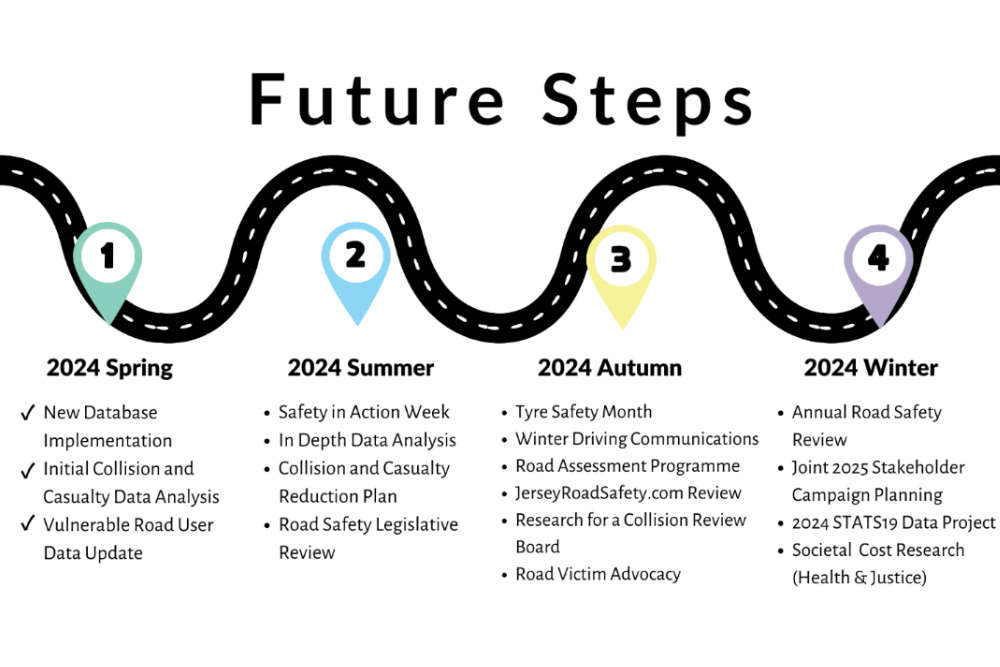 Autumn 2024 will see the introduction of a 'Tyre Safety Month' and Road Victim Advocacy, an increase in winter driving advice, a review of JerseyRoadSafety.com and research for a Collision Review Board.
Autumn 2024 will see the introduction of a 'Tyre Safety Month' and Road Victim Advocacy, an increase in winter driving advice, a review of JerseyRoadSafety.com and research for a Collision Review Board.
There will also be an annual Road Safety Review in winter with more campaign planning for 2025.
Deputy Chief of Police, Scott Hall, says the findings from this report are instrumental in guiding their enforcement strategies and the continued work they are doing with the infrastructure department.
"Our data underscores the importance of targeted interventions and infrastructure improvements to protect our most vulnerable road users, including pedestrians and cyclists.
By understanding the specific challenges and risks highlighted, such as the significant impact of the COVID-19 pandemic on traffic dynamics and the comparative analysis with Great Britain, we can better allocate resources and develop initiatives that will lead to a safer road environment for everyone.”


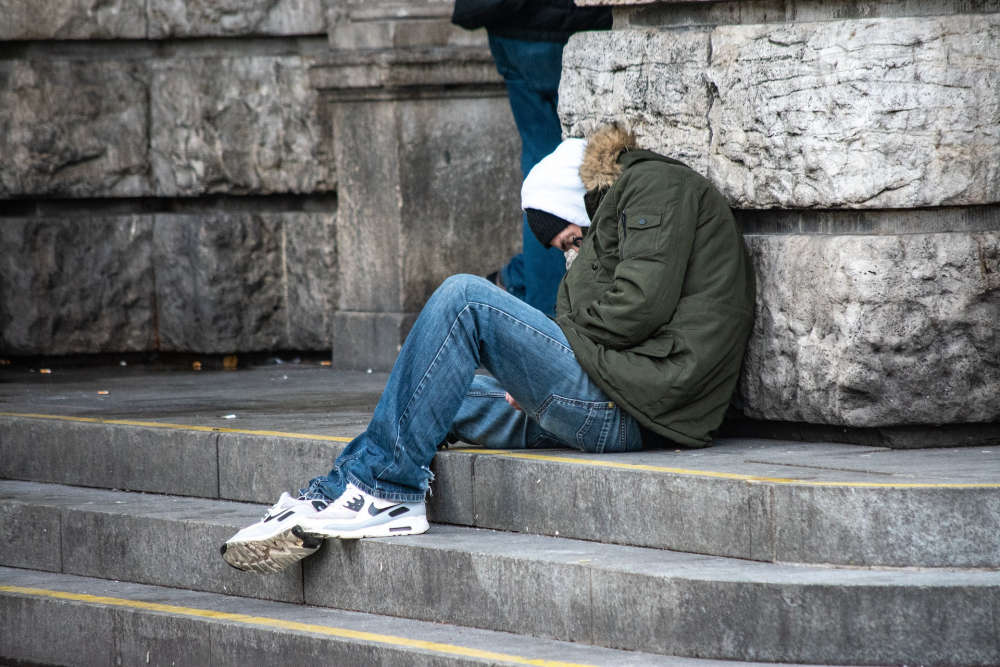 The split between working and non-working Jersey homeless is nearly 50/50
The split between working and non-working Jersey homeless is nearly 50/50
 Carers offered free training sessions for dementia
Carers offered free training sessions for dementia
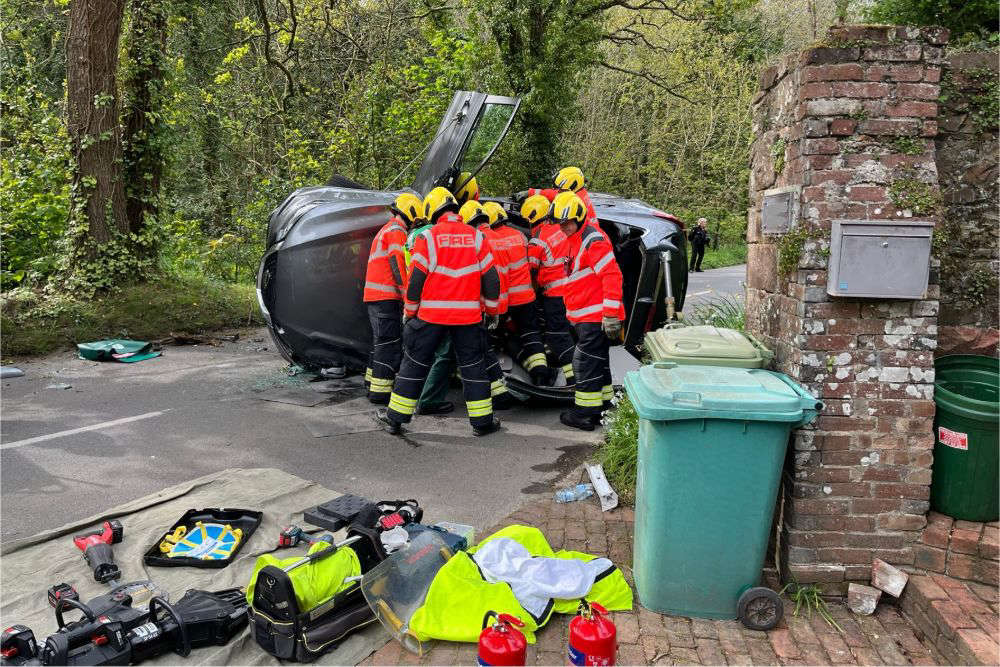 Firefighters save two islanders from serious St Peter car crash
Firefighters save two islanders from serious St Peter car crash
 New Channel Islands catamaran tests well in choppy seas
New Channel Islands catamaran tests well in choppy seas
 Jersey-born artist's work exhibited in the British Museum
Jersey-born artist's work exhibited in the British Museum
 Jersey Hospice opens new chairty shop out east
Jersey Hospice opens new chairty shop out east
 FIRST LOOK: New Parade Gardens playgrounds open two weeks early
FIRST LOOK: New Parade Gardens playgrounds open two weeks early
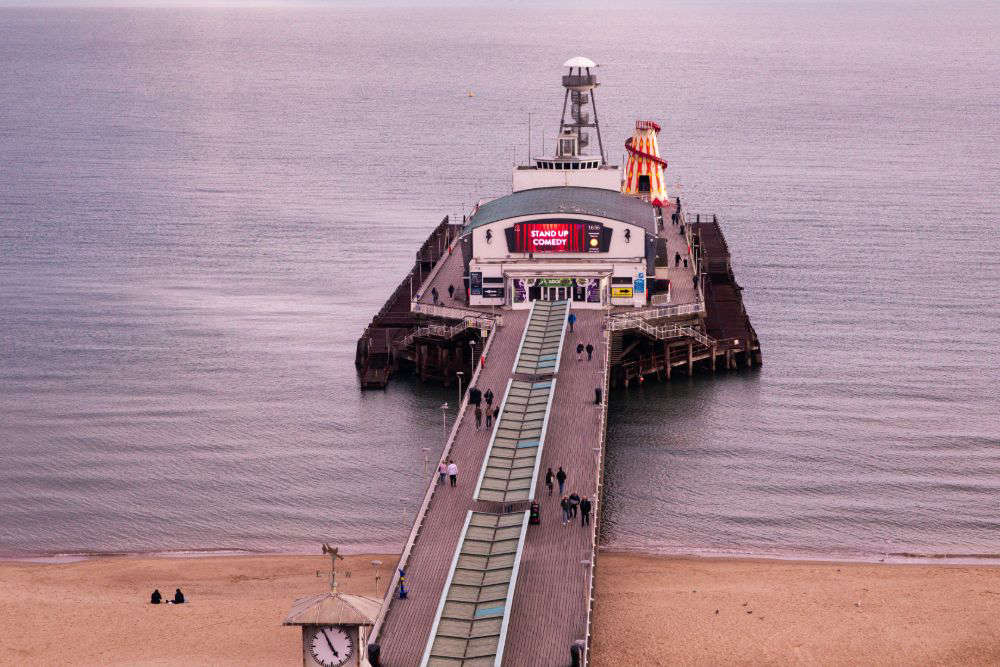 Bournemouth on the cards for 2026
Bournemouth on the cards for 2026

